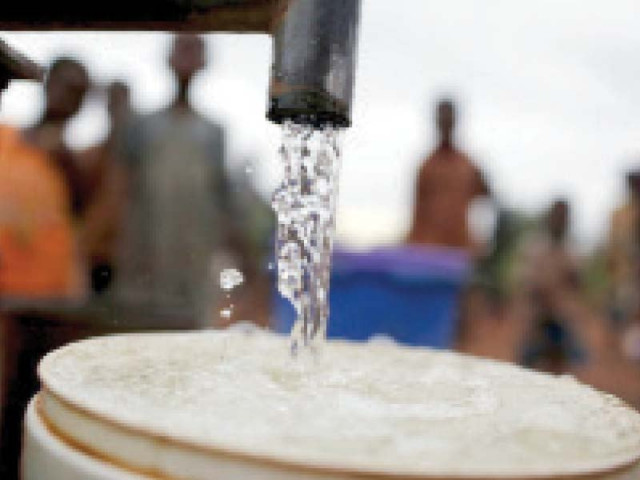Fine on ‘defiling’ water to go up to Rs10m from Rs1,500
PTI MNA moves a bill in NA seeking to enhance punishment for the crime from three months to three years

In 1860, a fine of Rs500 for polluting water of any public spring or reservoir was a stupendous amount. However, in the 21st century, there are several crimes that seem big and make headlines but the sentences and fines that they carry are just a sad reminder that we are still living in the 19th or 20th century.
One such crime is fouling water of public spring or reservoir which had similar punishment and fine in both the penal and criminal procedure code. Currently, it carries imprisonment of three months and a fine of Rs1,500.
Seeing the nominal punishment for a serious crime, the National Assembly took up a bill – the Criminal Law (Amendment) Act, 2021 – which seeks to enhance the punishment for the crime from three months to three years and fine from Rs1,500 to Rs10 million.
Subsequently, the National Assembly referred the bill seeking amendments in Pakistan Penal Code, 1860, and the Code of Criminal Procedure, 1898, to the committee concerned as the government “appreciated” the bill.
In the statement of objects and reasons, the mover of the bill PTI MNA Naureen Farooq Ibrahim stated that Pakistan is one of the top five countries worldwide in improving access to clean water yet over 17 million people still have no choice but to drink dirty water.
“Nearly 16,800 children under five years of age die each year from diarrhea caused by dirty water,” Naureen stated.
Unfortunately, she stated, punishment under section 277 of the Pakistan Penal Code for fouling water of public spring or reservoir, is nominal.
Through the amendment, she said, enhancement of the punishment has been proposed as the increase in punishment shall act as deterrent to stop fouling of water.
According to Section 277 (Fouling water of public spring or reservoir), “Whoever voluntarily corrupts or fouls the water of any public spring or reservoir, so as to render it less fit for the purpose for which it is ordinarily used, shall be punished with imprisonment of either description for a term which may extend to three months, or with fine which may extend to one thousand five hundred rupees, or with both.”
The lawmaker has proposed that imprisonment for a term which may extend to three years or fine which may extend to Rs10 million but shall not be less than Rs10,000, or both.
Similarly, she has proposed amendment in Schedule II of the Code of Criminal Procedure, suggesting that the offender may be arrested without warrants for defiling the water of a public spring or reservoir and the crime shall be a bailable but should be “not compoundable”.
According to a 2019 Sustainable Development Policy Institute (SDPI) working paper, “Political Economy of Water Pollution in Pakistan: An Overview”, polluted natural resources have a detrimental impact on their users, the wider economy and the ecology.
The paper said that approximately 20-40% of the total hospital beds in Pakistan are occupied by patients suffering from water-borne diseases. Owing to absence of safe drinking water and sanitation services, it added, the effects are not only seen on human health but also on the economy.
“Environmental degradation costs Pakistan Rs365 billion a year, which is borne by the poor. About one-third of this figure goes towards expenditures incurred for health-related issues due to inadequate water supply and sanitation,” it said.



















COMMENTS
Comments are moderated and generally will be posted if they are on-topic and not abusive.
For more information, please see our Comments FAQ